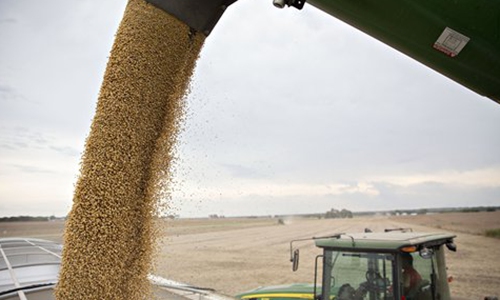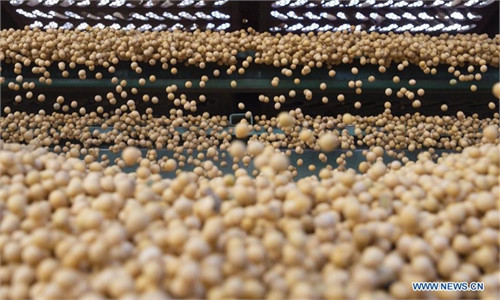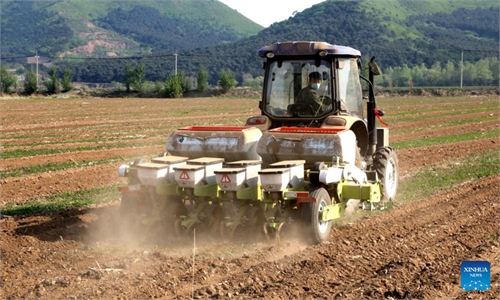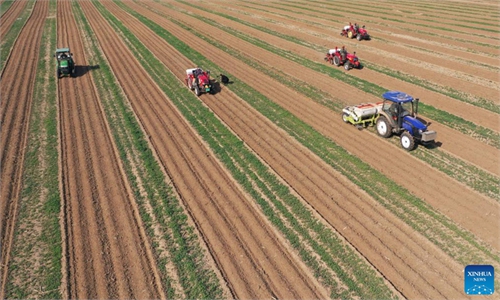
Soybean Photo:Xinhua
Chinese and Russian officials and business representatives gathered at an online business meeting on Thursday, aiming to further promote bilateral trade and investment in the agricultural sector, a booming field despite challenges such as the West's sanctions against Russia and COVID-19.
The meeting, hosted by the China Chamber of Commerce of Import & Export of Foodstuffs, Native Produce & Animal By-Products (CFNA), was aimed at strengthening mutual exchanges and cooperation between Chinese and Russian agricultural enterprises. More than 5,000 people participated in the meeting online, the organizer stated.
In the past 10 years, the compound annual growth rate of Chinese imports of agricultural products from Russia was 10.7 percent, which was higher than the growth rate of bilateral trade, according to CFNA on Thursday, indicating a strong momentum.
Products such as soybeans, meat and wheat are among those that have big potential to grow in terms of bilateral trade, with corresponding support measures already in place, industry insiders said.
With the deepening of bilateral trade relations, the CFNA has adopted several effective measures to strengthen the safety and stability of the supply chain for sustainable growth, which are prompting the development of a China-Russia soybean industry alliance, Cao Derong, chairman of the CFNA, said at the meeting.
"In light of a previous memorandum signed by the two countries, China is expected to import 3.7 million tons of soybeans from Russia by 2024, which is a big task, given that the average imports of soybeans from Russia have been less than 1 million tons every year," Cao said.
However, Cao said that potential remains, given that China imports around 100 million tons of soybeans per year, mostly genetically modified (GM) ones from the Americas, which can only used for edible oil and animal feed. "Soybeans from Russia are non-GM, and they can be used directly for human consumption," he said, noting the huge potential demand for non-GM soybeans in the Chinese market.
The potential for trade growth is huge, with Russian goods such as frozen fish, wheat, corn and pork seeing big export demand, despite the impact of the West's economic sanctions against Russia, the pandemic and other factors, Klishin Dmitry, representative of the Russian Ministry of Agriculture to China, said at the online meeting.
Despite global economic uncertainties and other lingering factors, bilateral trade between China and Russia has seen resilient growth, reaching $97.7 billion from January to July, a year-on-year growth of 29 percent, data from the General Administration of Customs showed.
Trade has gained momentum from factors such as the high facilitation level of the agricultural trade on both sides, Wang Kaixuan, director general of the Department of Eurasian Affairs of the Ministry of Commerce, said at the meeting.
"We support enterprises from both sides to deepen agricultural product cooperation, extend the industry and supply chains, and further diversify the food on the dining tables of the peoples of both countries," Wang said.
China and Russia will further expand bilateral trade, while finding new momentum in areas such as science and innovation, low-carbon sectors and biomedicine, in making steady progress for achieving the $200 billion mark for bilateral trade by 2024, Wang further noted.
Global Times



